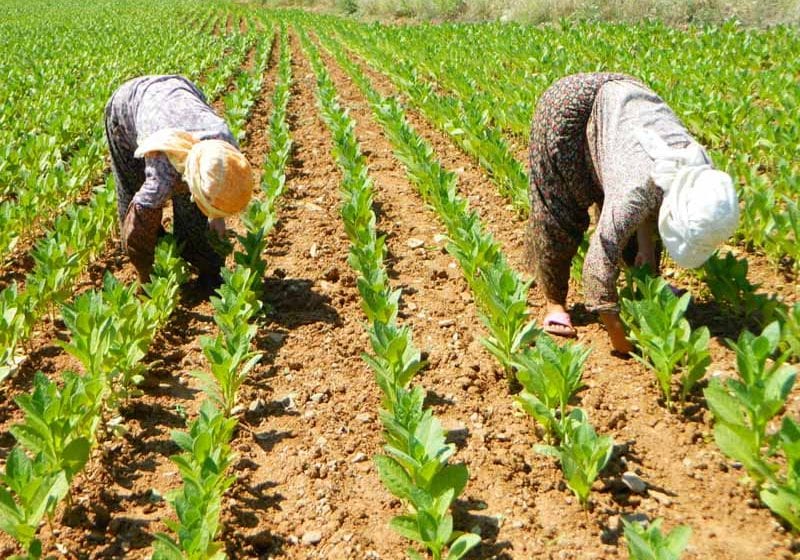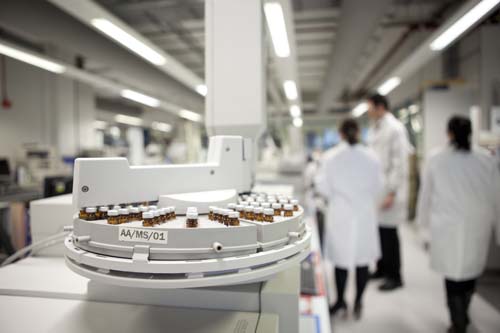Xi’an, the capital of Northwest China’s Shaanxi province, is set to ban tobacco smoking in all indoor public venues, according to a China Daily story.
The regulation banning smoking, which was announced on Tuesday by the city government, prohibits also smoking in some outdoor public places, such as schools, stadiums and health institutions for pregnant women and children.
Smokers who do not adhere to the regulation will be fined 10 yuan (US$1.50), and venue owners may be fined up to 1,000 yuan.
The regulation is due to take effect on November 1.
Xi’an, home to the Terra-Cotta Warriors, is the latest major Chinese city to ban smoking in all indoor public venues, following in the footsteps of Beijing and Shanghai.
China has set itself the target of reducing its smoking rate among people aged 15 and above from the current 27.7 percent to 20 percent by 2030, according to the Healthy China 2030 blueprint issued in 2016.
Tag: China

Chinese city to ban smoking

Registration deadline looms
‘Early Bird’ registration for the 2018 CORESTA (Co-operation Centre for Scientific Research Relative to Tobacco) Congress in China is due to close at midnight local time on August 15, according to a note issued by the organization’s Secretariat.
Registration is available through www.corestakunming2018.com, but online registration is due to close on October 7.
Twenty years after the first Congress to be held in China was hosted by the China National Tobacco Corporation (CNTC) in 1988 in Guangzhou, and 10 years after the 2008 Congress was held in Shanghai, CORESTA has again turned to China and the ‘world capital city of tobacco’, Kunming.
Kunming, which is the capital of Yunnan Province, is known also as the City of Eternal Spring – a reference to its year-long mild, sunny climate.
The Congress is due to be hosted by the CNTC and held on October 22-26 at the recently-built Intercontinental Hotel.
The theme of the 2018 Congress is Science and Innovation: addressing the needs.
According to a previous CORESTA press note; in line with this theme, CORESTA’s Scientific Commission wants the event to be an opportunity for delegates to share their experience with the broad scientific community, within and beyond the tobacco perspective.
‘Workshops will be arranged to foster open dialogue on crop protection, biotechnologies, product risk assessment and biomarkers,’ the note said.
‘This approach will provide valuable information to all stakeholders in the increasingly challenging regulatory environment.
‘Latest updates and scientific achievements and findings will be presented to the benefit of both experienced and new scientists.’
CORESTA is an association whose purpose is to promote international co-operation in scientific research relative to tobacco and its derived products.
The association organizes yearly conferences (congresses are held every two years) where hundreds of tobacco breeders, agronomists, biologists and plant experts on the one hand, and physicists, chemists, analysts, toxicologists, finished-product-related experts, regulators and authorities on the other hand, meet to present, share and discuss studies and findings.
CORESTA activities cover all aspects of tobacco, from the crop to the usage of the derived products.
During the sessions, CORESTA working groups also present reports on their work, achievements and projects.
Smoke control speed-linked
Nearly 90 percent of Chinese railways are subject to anti-smoking regulations, but enforcement remains poor, particularly on slower services, according to a China Daily story quoting the results of new research.
State and local tobacco control policies require that station waiting areas, platforms and train carriages are smoke free.
But compliance is far from satisfactory, according to research released on Monday by Yang Jie, deputy director of tobacco control for the Chinese Center for Disease Control and Prevention.
China to buy Bulgarian leaf
Speaking at a press conference in Sofia, China’s Prime Minister Li Keqiang promised his Bulgarian counterpart, Boyko Borisov, that China would buy up to 10 million kg of leaf tobacco from Bulgarian farmers each year, according to a Novinite story relayed by the TMA.
The comments followed the conclusion of the 16+1 forum, an initiative by China aimed at expanding co-operation with 11 EU member states and 5 Balkan countries in the fields of investments, transport, finance, science, education, and culture.
Bulgaria produces about 25 million kg of tobacco each year, about 15-18 million kg of which comprises oriental tobacco.
China has for many years been expected to enter the market for classical oriental tobacco, an entry that, at this stage, could have a significant effect on the market.
Borisov was quoted as saying that Li had suggested that Bulgarian farmers should start growing ‘Chinese varieties of tobacco’ – perhaps Chinese styles of tobacco.
Smokers off the rails
A Beijing court has ordered a railway authority to eliminate smoking areas on trains to provide a ‘better traveling environment for passengers’, according to a story in The China Daily.
The court said also that ashtrays should be removed.
The Beijing Railway Transport Court gave the order to the Harbin Railway Bureau in a ruling that said the removal of smoking-related facilities and zones would protect the public interest.
‘People’s rights sometimes come into conflict in a closed space, such as trains,’ the verdict said. ‘Passengers’ rights to stay healthy in coaches, we believe, is more important than the rights of smokers.’
Sun Weihong, the railway bureau’s attorney, said after the announcement that the bureau hadn’t decided whether to appeal against the decision.
Jiang Yuan, deputy director of the Chinese Association on Tobacco Control, applauded the ruling, describing it as the beginning of the end of smoking on ‘ordinary trains’.
In China, smoking is prohibited on high-speed trains, but not on ordinary trains.
“The case can be considered the country’s first lawsuit in which an ordinary train was ordered to prohibit smoking,” Jiang said.
The decision, Jiang added, would help contribute to smoking control in other public places.
Smoking population falls
The number of tobacco smokers in Beijing has dropped by about 200,000, three years after the city adopted a strict tobacco control regime, according to a Xinhua News Agency story quoting the city’s health authority.
The adult smoking rate in Beijing now stands at 22.3 percent, or 3.99 million smokers, 200,000 fewer than the figure for 2015, the commission for health improvement said.
Sixty-one hospitals are said to have opened smoking cessation clinics.
Meanwhile, the city has nearly 15,000 tobacco control volunteers; so about 1,600 ‘departments’ and more than 7,300 individuals have been punished for violations of the tobacco control regulations.
Medical establishments, schools and hotels are said to have a relatively high compliance rate in respect of smoking restrictions, while small restaurants, office buildings and entertainment venues ‘continue to pose difficulties for regulators’.
Smoking spaces 'civilized'
China’s State Tobacco Monopoly Administration (STMA) said on Monday that indoor tobacco-smoking areas should be introduced in public buildings because enforcing total bans in all public places would be too difficult, according to a story by Christian Shepherd for Reuters.
Last month, the China National Tobacco Corporation (CNTC), which is regulated by the STMA, persuaded the eastern city of Hangzhou to amend proposed rules to ban indoor smoking in public places by allowing the introduction of designated areas for smokers.
The STMA, which shares offices and personnel with the CNTC, denied playing any role in the amendment of the tobacco-control measures.
‘We believe that as it is currently difficult to implement a total ban on public smoking, establishing independent smoking areas or indoor smoking rooms in public spaces allows civilized smoking,’ the STMA said in a faxed response to Reuters’ questions.
‘A mature and ideal society should respect every adult’s free choice to smoke or to quit smoking,’ it added.
China faces challenges
About 6.9 percent of Chinese teenagers smoke tobacco and 19.9 percent of them have tried smoking at least once, according to a story in The Global Times quoting a health department official and citing the news website chinanews.com.
The story said also that 180 million children in the country had been harmed by passive smoking, without defining what was meant by a child.
Habits acquired during teenage years could leave their mark on a person’s whole life, said Li Nong, deputy director of the publicity department at the National Health Commission. Efforts to control smoking among teenagers should be stepped up.
Eighteen cities had imposed smoking bans in public places, but controlling the habit in China faced challenges, Li said.
The country’s target of reducing the smoking rate among people over 15 years of age to less than 20 percent by 2030 still had a long way to go.
The deputy director of the Chinese Association on Tobacco Control, Liao Wenke, said innovative education methods, which teenagers could and were willing to accept, should be initiated to educate them about the harmful effects of smoking.
As of March 2018, the public-places smoking-incidence in Shanghai dropped by nearly nine percentage points (from 25.1 percent to 16.3 percent) after the introduction of a ban in all enclosed public spaces in March 2017.
BAT widens horizons
British American Tobacco has made its first outside investment as it steps up the search for cutting-edge technology that could help it to reduce its reliance on cigarettes and other traditional smoking products, according to story by Bradley Gerrard for the Electronic Telegraph.
The company has backed China Materialia Venture Capital, a Chinese investment fund that is said to seek out early-stage technology firms in a bid to help them develop products that could subsequently be sold to larger companies.
Dr. David O’Reilly, who heads BAT’s research and development division, was quoted as saying that the company had for the first time invested in what he described as a “corporate scouting venture fund” whose aim was to help its investors “secure the latest technology”.
Springtime for CORESTA
CORESTA, the Co-operation Centre for Scientific Research Relative to Tobacco, is returning to China for its 2018 Congress.
Twenty years after the first Congress to be held in China was hosted by the China National Tobacco Corporation (CNTC) in 1988 in Guangzhou, and 10 after the 2008 Congress was held in Shanghai, CORESTA is again turning to China; this time to the ‘world capital city of tobacco’, Kunming.
Kunming, which is the capital of Yunnan Province, is known also as the City of Eternal Spring – a reference to its year-long mild, sunny climate.
The Congress is due to be hosted by the CNTC and held on October 22-26 at the recently-built Intercontinental Hotel.
The theme of the 2018 Congress is Science and Innovation: addressing the needs.
According to a recent CORESTA press note; in line with this theme, CORESTA’s Scientific Commission wants the event to be an opportunity for delegates to share their experience with the broad scientific community, within and beyond the tobacco perspective.
‘Workshops will be arranged to foster open dialogue on crop protection, biotechnologies, product risk assessment and biomarkers,’ the note said.
‘This approach will provide valuable information to all stakeholders in the increasingly challenging regulatory environment.
‘Latest updates and scientific achievements and findings will be presented to the benefit of both experienced and new scientists.
‘A CORESTA Congress is always an invaluable opportunity for building links and networking between generations of scientists.’
The Congress program is due to be made available at www.coresta.org at end of June.
CORESTA is an association whose purpose is to promote international co-operation in scientific research relative to tobacco and its derived products.
The association organizes yearly conferences (congresses are held every two years) where hundreds of tobacco breeders, agronomists, biologists and plant experts on the one hand, and physicists, chemists, analysts, toxicologists, finished-product-related experts, regulators and authorities on the other hand, meet to present, share and discuss studies and findings.
CORESTA activities cover all aspects of tobacco, from the crop to the usage of the derived products.
During the sessions, CORESTA working groups also present reports on their work, achievements and projects.







